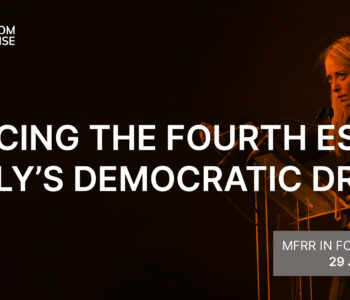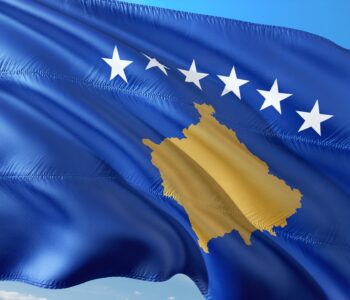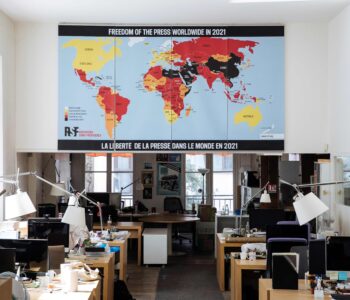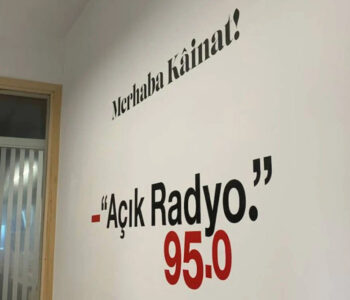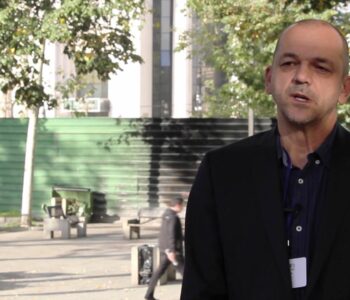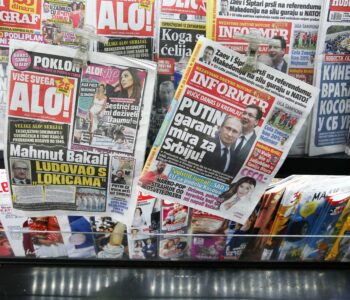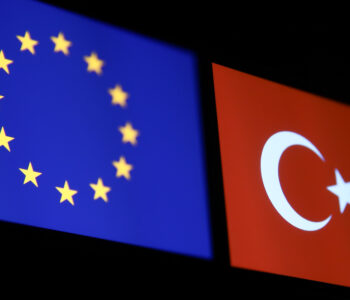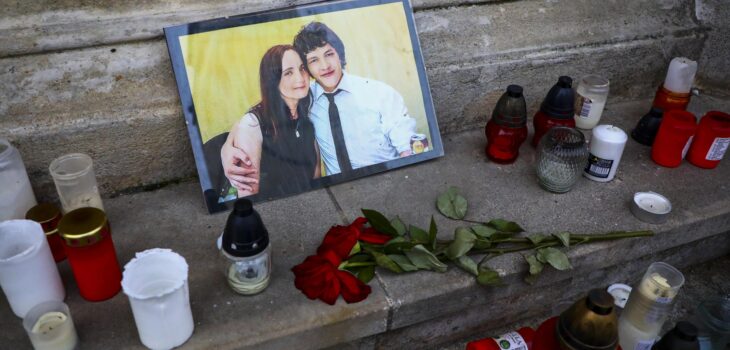
How Slovak politicians did not learn from the murder of a journalist
Recent legal reforms show promise, yet discrediting attacks on journalists continue
By IPI contributor Beata Balogová, editor-in-chief of SME
Igor Matovič, the current finance minister of Slovakia and former prime minister, sailed to power on the wave of public anger and disappointment that in 2018 followed the murder of journalist Ján Kuciak and his fiancée Martina Kušnírová.
“Permanent attacks on journalists, defamations, suggesting that journalists are anti-Slovak prostitutes and enemies of the nation” – Matovič listed the sins of former prime minister Robert Fico against the press in an official press release on the day the public learned about the murders. He blamed Fico for “creating an atmosphere” that resulted in the killing of a journalist.
Robert Fico made journalists who uncovered corruption scandals of his governments targets through his permanent attacks. In less than a month after the murders, he had to resign on the heel of massive anti-corruption protests.
In the following parliamentary elections in 2019, Matovič, who throughout his political career used findings of top investigative journalists to build an image of himself of an anti-corruption activist, defeated Fico and became the next prime minister.
But how did it happen that almost five years later Matovič is not far behind Fico when it comes to verbal attacks against journalists? Most recently Matovič likened critical journalists to propagandists of Adolf Hitler and suggested that journalists can be bought for 500 euros to write favorable stories about their client. On a live radio show he also said he would gradually take down the corrupt journalists.
Promises and reality
The bouquet of political promises over the grave of Jan and Martina included stronger protection for journalists. This should have partially materialized in a constitutional law granting a special status for journalists along with an equal approach of state institutions to private and state-owned or public media. This law would also curb the possibility of state intervention (such as nationalization) against private media, for example.
The draft of this law is still parked at the ministry of culture, and it is unlikely that this government will find enough political will to pass such legislation.
The parliament, however, in June 2022 did adopt a long-due package of media laws to replace the legislation that had been ignoring the existence of digital media. The beginnings were promising, with the process appearing to reflect what one would find in a press-freedom-conscious country. The ministry of culture consulted on the draft with publishers of key media and experts so that it creates equal ground for different types of media (print, digital, broadcast).
The ambition is to bring more transparency to media ownership by creating a register for media. The state can remove any media from the register if it is financed by someone from the UN sanction list. Media companies must report their sponsors and all financial donations over 1,200 euros annually to the state. The legislation also introduces regulation for video-sharing platforms.
However, in parliament the law became a victim of political bargaining. In a last-minute move, part of the ruling coalition conditioned the adoption of the law packages on the insertion of a “right of reply” for public officials who feel that a media report affects their privacy, honour or dignity into the legislation. This applies also to opinions if these rise from false information.
It was either with a right to statement or no legislation passed at all. Journalists felt that the right of statement was an act of revenge from the ruling coalition in response to journalists’ critical approach to the government and the way they fulfilled their watchdog role during the pandemic.
Inspiration from Orbán
In September 2022, the Ordinary People, the party of Matovič, unexpectedly and without any previous discussion submitted to the parliament a proposal to impose a levy on the largest private broadcasters. The public broadcaster would not pay such a levy under this proposed legislation. If adopted, the levy would be a discriminatory measure that directly threatens independent media and allows the state to make interventions into their operation, media lawyers and press freedom advocates have warned.
Many see behind the move an inspiration from Hungarian Prime Minister Viktor Orbán, who has been trying to suffocate the last television station that still broadcasts critical news, RTL Klub. Earlier this year Orbán announced the reintroduction of a tailor-made tax for broadcasters, like the one he had to kill four years ago after massive criticism from European institutions. Since the announcement, the government provided no further details, thus the broadcaster did not know what to expect. However, on October 19 the Orbán government said it will not collect the advertisement tax next year.
Matovič did not discuss this law with experts or the independent broadcasters.
Ján and Martina
It was clear from the day of the murder that some politicians would abuse the memory of Ján Kuciak and Martina Kušnírová, using them for their own benefit. Matovič would often refer to Jan Kuciak when lashing out at independent media for criticizing his political performance.
When marking the anniversary of the murder in 2022, in a rather ambiguous statement, he said he wished that journalists become like Ján Kuciak. He publicly lashed out at Kuciak’s editor at Aktuality, Peter Bárdy, and said that he does not come anywhere close to Kuciak and only pretends to be his mentor. He called Bardy a shame.
Matovič had a chance to change the approach of politicians towards the media in Slovakia – not only in the sense of improving the legal environment but also cleaning the atmosphere of hate and verbal attacks. Instead, he sees himself as a victim of the media and compared his situation to those of Holocaust victims. The fact that he is now finance minister, and therefore wields signficiant influence in government, represents a challenge to the independent media as well: having to ponder when to react and when to ignore his attacks against the press.
Orbán succeeded in building elected autocracy in Hungary because he completely captured the press and significantly complicated the functioning of the independent media. Therefore, people in Slovakia should be disturbed by similar tendencies, including politicians describing the press as an organized criminal group or enemies of the nation.
This article is part of IPI’s reporting series “Media freedom in Europe in the shadow of Covid”, which comprises news and analysis from IPI’s network of correspondents throughout the EU. Articles do not necessarily reflect the views of IPI. This reporting series is supported by funding from the Friedrich Naumann Foundation for Freedom and by the European Commisson (DG Connect) as part of the Media Freedom Rapid Response coalition.

